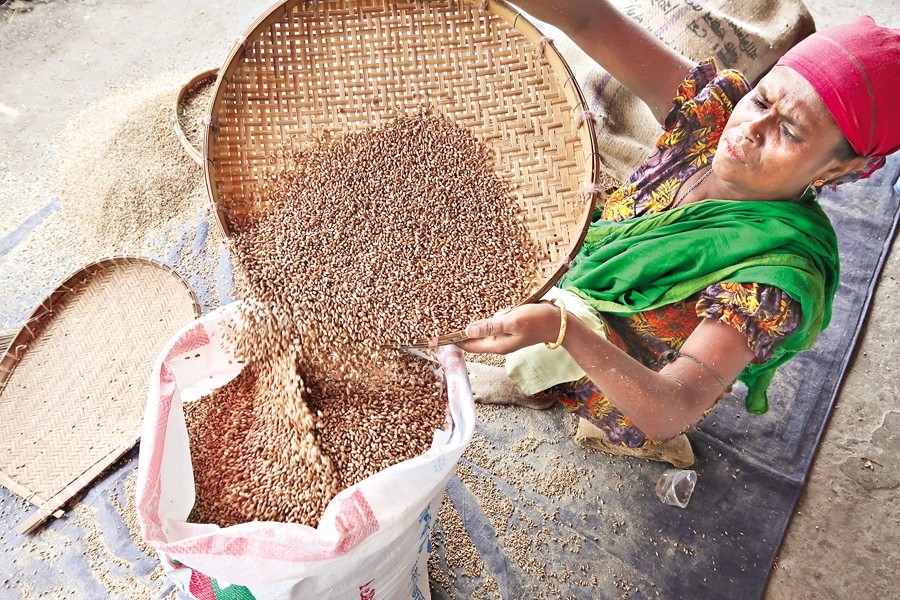Wheat flour continues to surge in the local market as coarse flour (ata) in loose form rose in price at Tk 50 per kilogram on Saturday.
It was a hike by Tk 4.0 a kg in four days and Tk 10 a kg since the Indian export ban imposed on May 13.
Branded finer flour (maida) price also surged to a record Tk 70 while maida in loose form to Tk 66 a kg, Tk 2.0-4.0 hike further, according to city markets and groceries.
"The price of ata and maida witnessed Tk 7.0-8.0 hike a kg wholesale since the Indian government's declaration to stop exports," said Enamul Hoque, a grocer in Mohammadpur's Katasur area.
He said the price of 50-kg sack ata has seen a Tk 400-500 hike in the last one week as sold at Tk 2,300-2,350 wholesale.
"But mills' distributors are not supplying ata and maida as per our requirements despite accepting their higher price offer."
He said many shops lack one kilo of branded ata or maida packet. Maida was being sold at Tk 132 per two-kg pack and ata at Tk 98-100 per two-kg packet.
The soaring prices of ata and maida have hurt the commoners further who are already battered with rocketing trend of rice, edible oil, meat, egg, fish and other essentials, according to market observers.
Consumers Association of Bangladesh vice-president SM Nazer Hossain said ata and maida market might be like edible oils' if the government does not act immediately.
India stopped exports on May 13, but importers, millers and allied traders are making exorbitant profits by raising prices of the products bought two to three months back, he added.
Market monitoring should be strengthened to maintain sound supply of products at affordable prices as commoners' food security largely depends on wheat products, he added.
Value-chain expert Prof Golam Hafeez Kennedy said Indian wheat is the cheapest in the world and neighbouring countries had options to source wheat from the stock.
"Apart from availing the neighbouring preference of India, the government should sit with major importers immediately to source wheat also from the South and North Americas, Oceania and Europe."
Prof Kennedy said more than 7.5-million tonnes of wheat are needed annually of which the country produces only 1.0-million tonnes.
"Any possible supply shortage of wheat could lead to a surge in demand for rice and this could put the government in a terrible predicament."
"So, import of the item, even at record rates, should be ensured both through private and government channels," the expert suggested.
However, after hitting a 14-year high price on May 17, wheat began to decrease in rate in both European and North American markets, disclose commodity portals.
News portal businessinsider.com said in the European markets wheat was traded at $443-449 (Euro 420-425) a tonne on May 20.
Another portal tradingeconomics.com said Chicago wheat futures fell further to below $472 a tonne ($12 per bushel) on May 20 from above $500 on May 17.


